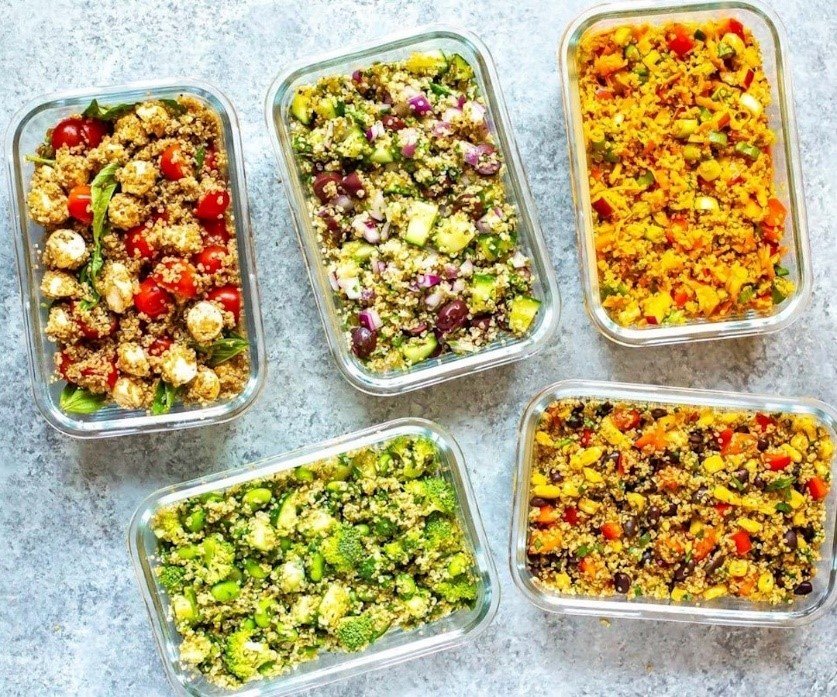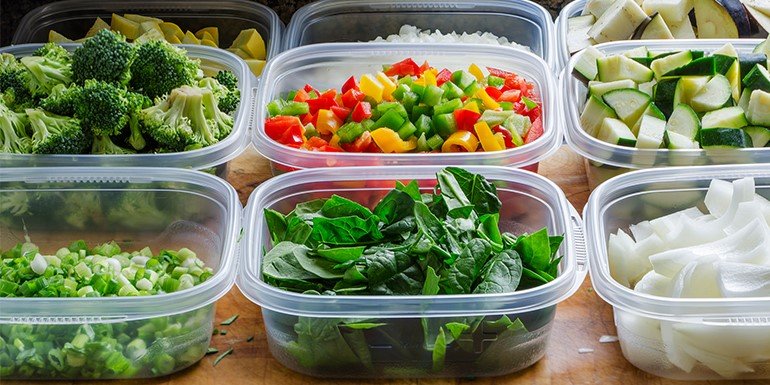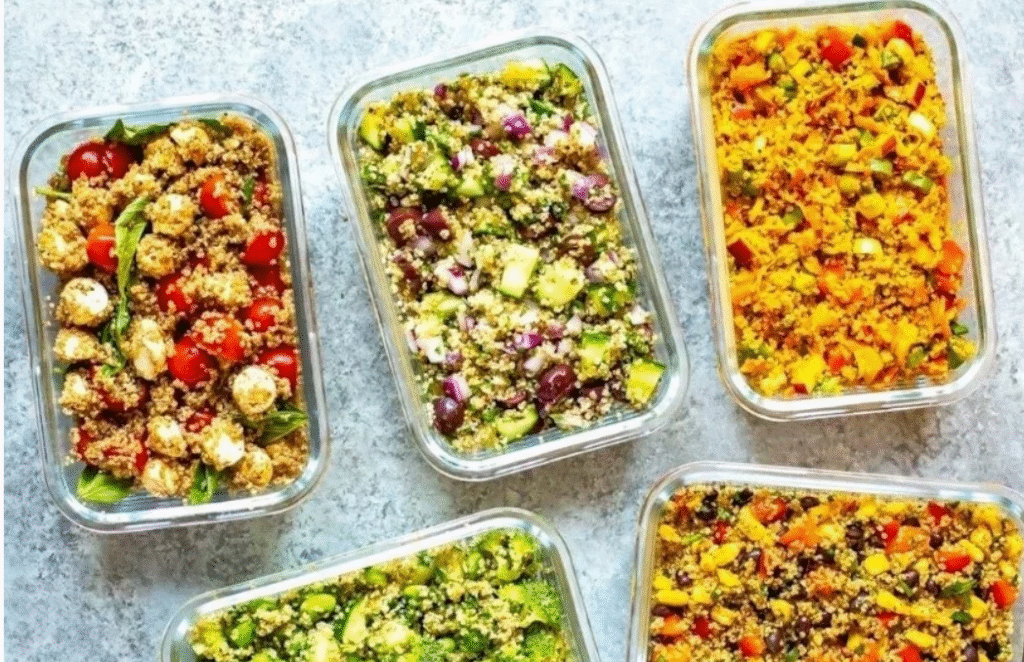How to Meal Prep for a Week Without Getting Bored
Meal prepping has become a popular strategy for people looking to save time, reduce stress, and stick to healthier eating habits. But if you’ve ever tried it, you might know the biggest challenge: boredom. Eating the same grilled chicken and broccoli five days in a row can quickly make you want to quit and order takeout.
The truth is, meal prep doesn’t have to be repetitive or dull. With a little creativity and strategy, you can prep meals that are nutritious, cost-effective, and exciting all week long.
This guide will show you how to meal prep for a week without getting bored—using real-life stories, case studies, and tried-and-true tips that work in everyday kitchens.
Why Meal Prep Works
Story: Emily, a busy nurse, used to grab fast food after long shifts. She noticed she was spending over $300 a month on takeout and felt sluggish. When she started meal prepping, she cut her food budget in half and lost 12 pounds in three months. But her first attempt—five containers of plain chicken and rice—left her dreading mealtime. Once she learned how to mix up flavors and recipes, meal prep became a lifestyle instead of a chore
Meal prepping works because it:
Saves time during the week.
Reduces impulse eating.
Helps por10 Strategies to Meal Prep Without Getting Bored
1. Start With a Flavor Base, Not a Full Meal
Instead of prepping the same dish, prepare versatile ingredients you can mix and match.
Case Study: A study from Harvard School of Public Health found that participants who prepped building blocks (grains, proteins, veggies) instead of complete meals were more likely to stick with meal prep for longer periods.
Example:
Cook a batch of quinoa, roast chicken, and sautéed vegetables.
Day 1: Chicken quinoa bowl with lemon tahini.
Day 2: Chicken tacos with salsa.
Day 3: Quinoa salad with roasted veggies.
2. Use Different Seasonings
A chicken breast can taste completely different depending on the seasoning. Batch-cooking proteins and flavoring them in multiple ways is a boredom buster.
Example:
Chicken + Italian herbs = pasta topper.
Chicken + soy sauce + ginger = stir-fry.
Chicken + cumin + paprika = taco filling.
Story: Jake, a fitness enthusiast, realized he could eat chicken daily without boredom just by experimenting with spice rubs and marinades. His favorite? Honey sriracha for a quick protein boost.
3. Mix Cooking Methods
Variety isn’t just about flavors—it’s about texture, too. Grilled, roasted, stir-fried, and slow-cooked versions of the same protein create totally different meals.
Example:
Grilled salmon with asparagus.
Salmon stir-fry with rice noodles.
Slow-cooked salmon in miso broth.
4. Freeze for Variety
Meal prep doesn’t mean you need to eat everything in one week. Freezing portions allows you to rotate meals and reduce burnout.
Case Study: In a workplace wellness study, employees who prepped freezer-friendly meals reported higher satisfaction and less food waste compared to those who only prepped weekly fresh meals.
Tip: Soups, stews, and chili freeze especially well.

5. Prep Breakfast Differently
Many people get stuck on meal prepping dinner, but breakfast variety can make mornings exciting.
Ideas:
Overnight oats with rotating toppings (berries, nuts, cocoa).
Egg muffins with different fillings.
Smoothie freezer packs (blend with milk on demand).
Story: Laura, a teacher, said prepping smoothie bags was her secret to avoiding drive-thru breakfasts. By switching flavors (mango-pineapple vs. spinach-banana), she never felt bored.
6. Rotate Sauces and Condiments
The same base ingredients taste brand-new with different sauces.
Example:
Rice + veggies + tofu with teriyaki.
Same combo with curry sauce.
Same combo with garlic yogurt dressing.
Case Study: A food blogger tested three sauces on roasted vegetables—BBQ, tahini, and chimichurri. Readers reported this trick alone doubled their meal prep consistency.
7. Prep Snacks, Not Just Meals
Boredom often sneaks in between meals. Having prepped snacks keeps energy up and taste buds happy.
Ideas:
Hummus with veggie sticks.
Yogurt parfait jars.
Energy bites with oats and peanut butter.
8. Shop Seasonal and Fresh
Seasonal produce not only tastes better but also naturally adds variety.
Story: When Rahul started shopping at his local farmers’ market, he noticed his meal prep felt less repetitive. Zucchini in summer, squash in fall—it kept his menus exciting year-round.

9. Plan Themes for Each Day
Give each day a different flavor theme.
Example Weekly Plan:
Monday: Mediterranean (chickpeas, olive oil, herbs).
Tuesday: Mexican (beans, salsa, tortillas).
Wednesday: Asian-inspired (ginger, soy, sesame).
Thursday: Comfort food (soups, pasta).
Friday: Leftover remix night.
Case Study: A Reddit meal-prep community reported higher success with “theme nights,” which gave structure but kept flavors varied.
10. Use Leftovers Creatively
Transform leftovers into new dishes instead of reheating the same thing.
Example:
Roast chicken → chicken salad sandwiches.
Cooked quinoa → breakfast porridge with almond milk.
Grilled veggies → blended into a soup.
Story: Megan, a mom of three, called this her “second life meals.” She turned Sunday’s roast dinner into Monday’s soup, Tuesday’s tacos, and Wednesday’s wraps.
Meal Prep Case Study: The Boredom-Free Week
Let’s look at a sample week plan combining these tips.
Pep Sunday:
Roast chicken (season in 2 styles).
Cook brown rice + quinoa mix.
Roast mixed veggies.
Make 3 sauces (pesto, peanut, lemon tahini).
Meals:
Monday: Chicken pesto grain bowl.
Tuesday: Chicken tacos with salsa.
Wednesday: Quinoa veggie salad with tahini.
Thursday: Asian stir-fry with peanut sauce.
Friday: Leftover remix wrap.
Same core ingredients, five completely different meals.
Conclusion
Meal prep is one of the best ways to save time, money, and stress—but it doesn’t have to mean eating the same meal every day. By rotating seasonings, sauces, cooking methods, and themes, you can enjoy variety without doubling your workload.
Remember, the key to lasting success is making meal prep enjoyable, not rigid. Once you master the art of keeping it fresh, you’ll find yourself looking forward to your prepped meals every week.
References
Harvard School of Public Health – Meal Planning and Healthy Eating
BBC Good Food – Batch Cooking Basics
New York Times Cooking – Meal Prep Strategies for Beginners
Bon Appétit – The Secret to Flavor Variety in Meal Prep
Serious Eats – Why Seasonings Matter
America’s Test Kitchen – Meal Prep Without Boredom
EatingWell – Freezer-Friendly Recipes
Healthline – Benefits of Meal Prepping
Smithsonian Magazine – The Evolution of Meal Prep
Reddit r/MealPrepSunday – Community Tips for Successful Prep



